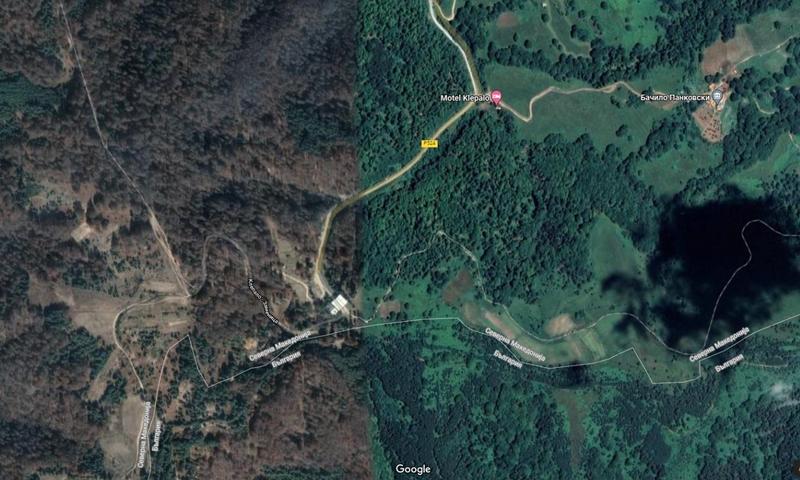Bulgaria and the Republic of Northern Macedonia will be connected to another border crossing checkpoint
Bulgaria and the Republic of Northern Macedonia will be connected to another border crossing checkpoint
By Ministry of Regional Development and Public Works
A new border checkpoint will be built between Bulgaria and the Republic of Northern Macedonia. The strategic project for the Klepalo border checkpoint between Strumyani and Berovo will provide another link between the two countries and help develop economic co-operation and tourism.
Deputy Prime Minister and Minister of Regional Development and Public Works Grozdan Karadjov and his Macedonian counterparts – the Minister of Transport and Communications Blagoj Bocvarski and the Minister of local self-government Goran Milevski - agreed to speed up work at the border crossing. The ministers took part in a meeting of the working group "Infrastructure, Transport, Connectivity" in the framework of the government meeting between the two countries.
The construction of the new border checkpoint will be financed with 10.3 million euros from the Bulgaria-Northern Macedonia Cross-Border Cooperation Programme in the period 2021-2027. It will complete and rehabilitate the roads leading to the border from Strumyani and Berovo.
Ministers outlined steps to speed up the construction of the Klepalo border checkpoint so that the checkpoint is ready by the end of 2023. The first formal meeting of the Joint Expert Commission to determine its parameters is expected by the end of February.
Bulgaria has started working on improving the roads to the future checkpoint. Preventive repairs have been carried out approximately 20 km from the third-class road Strumyani - Razdol. For the remaining 17 km to the border, a project has been prepared with two options for the construction of the route. The RIA expert commission will choose one of the two options by the end of February, after which the necessary environmental procedures will begin. The construction of the section is set in the investment program of the Road Infrastructure Agency.
Minister Grozdan Karadjov informed that the border checkpoint "Stanke Lisichkovo" between Blagoevgrad and Delchevo is to be expanded. The complete modernization on the Bulgarian side includes the design and construction of new separate routes at the checkpoint, which will take increased traffic of passengers and vehicles. There will also be new buildings for border and customs control. This will significantly facilitate travel between the two countries and reduce waiting at peak times.
The ministers also discussed another key project - the completion of the Pan-European Transport Corridor № 8 "Duras - Tirana - Kaftan / Kafasan - Skopje - Deve Bair - Gueshevo border checkpoint - Sofia - Plovdiv - Burgas - Varna". It connects the Adriatic Sea with the countries of the Black Sea region, Russia and Central Asia.
Deputy Prime Minister Karadjov noted that the road infrastructure in the direction of the Bulgarian side is built with the exception of the Black Sea highway. A priority for the Bulgarian government will be the widening of the route between Gueshevo and Dupnitsa, also part of Corridor 8. The modernisation of the 62 km section will provide a faster connection between the Struma Motorway and the border. The site is included in the RIA program, and a public procurement for design is to be announced. Funding is planned in the travel agency's three-year budget framework.
The ministers also discussed the preparation of the Cross-Border Cooperation Programme until 2027, which is to be approved by the European Commission. Under the program, the two countries will have access to more than 31m euros, which will finance not only the construction of the new border crossing, but also projects in the field of environmental protection, improving regional connectivity and promoting economic growth, culture, natural heritage, sustainable tourism and security in border areas. The funds for the period 2021-2027 are almost twice as much as in the previous period, which provides serious opportunities for border settlements on both sides of the border.
In the period 2014-2020, 73 projects worth over 18.1 million euros were implemented in the border regions of the two countries.




